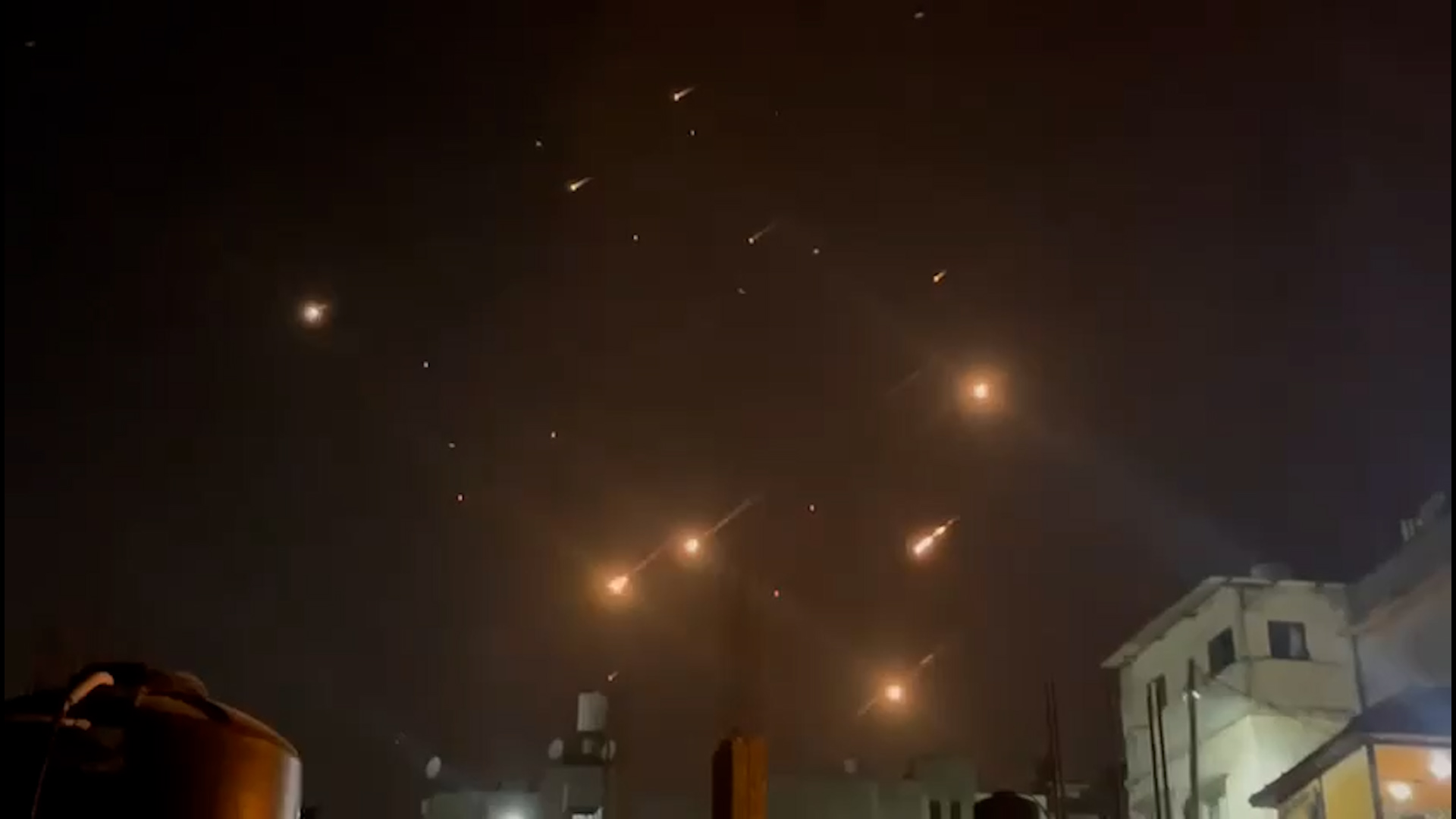Israel and Iran Exchange Fiercest Attacks in History as Regional Tensions Soar
The Israeli military reported continued Iranian missile fire Saturday night and confirmed that residential buildings had been hit. In the Tel Aviv suburb of Ramat Gan, AFP images showed destroyed buildings and vehicles, while rescue teams worked to free civilians trapped under rubble.

ERBIL (Kurdistan24) — Iran activated its air defense systems across multiple regions on Saturday night as Israel urged its citizens to seek shelter amid a fresh barrage of missiles, marking the most intense direct military confrontation between the two rival nations to date, according to AFP.
The late-night renewed exchange came just hours after Israeli Prime Minister Benjamin Netanyahu vowed to strike “every target of the ayatollah regime.” In a video statement, Netanyahu claimed the Israeli campaign had already delivered a “real blow” to Iran’s nuclear program and said it would continue. Defense Minister Israel Katz warned that “Tehran will burn” if attacks on Israeli civilians persisted.
Israel's firefighting service said late Saturday night, following the most recent Iranian Ballistic missile attack, that residential buildings were hit and a fire started in the country's coastal and northern districts.
"Several incidents have been reported to the Israel Fire and Rescue Services command centers in the Coastal and Northern Districts, with hits on residential buildings and a fire in an open area", Israel Fire and Rescue Services spokesman Tal Volbovitz said in a statement.
Local Israeli health officials reported that the recent attacks injured 14 civilians, with one suffering severe injuries.
Earlier in the day, Iranian President Masoud Pezeshkian stated that any continuation of Israeli aggression would be met with a “more severe and powerful response.
On Friday, Israel launched a wide-ranging military operation that targeted Iranian air defenses, nuclear facilities, and military command centers. Tehran reported the killing of dozens, including senior military officials and top atomic scientists. Among the dead were Iran’s top military chief, Mohammad Bagheri, and the commander of the Islamic Revolutionary Guard Corps (IRGC), Hossein Salami. Israeli military sources claimed more than 20 Iranian commanders had been killed in the strikes.
As Israeli missiles hit targets in cities including Tehran and Khorramabad on Saturday, Iranian authorities announced a “new wave” of retaliatory attacks on Israel. Iran’s UN ambassador said the initial Israeli bombardment killed at least 78 people and wounded 320 others. In response, Iran launched missiles and drones overnight Friday, killing three people and injuring 76 in Israel, where videos captured the night sky lit up by explosions over Tel Aviv and Jerusalem.
The Israeli military reported continued Iranian missile fire Saturday night and confirmed that residential buildings had been hit. In the Tel Aviv suburb of Ramat Gan, AFP images showed destroyed buildings and vehicles, while rescue teams worked to free civilians trapped under rubble. “Everything was shaking, smoke, dust, everything was all over the place,” one resident recounted.
In Tehran, fire and thick smoke were seen rising over Mehrabad Airport, while Iranian media reported a massive explosion at an oil refinery in the southern city of Kangan following an Israeli drone strike. Iran’s Red Crescent reported that an ambulance was hit in the city of Urmia, killing two people.
The conflict has halted air travel across the region, with Iran, Israel, and neighboring countries such as Jordan, Lebanon, and Syria closing and later reopening their airspace.
According to AFP, this unprecedented escalation comes after decades of proxy confrontations and diplomatic hostilities between Israel and Iran. For the first time, the two adversaries have traded direct and sustained military strikes. International concern is mounting over the potential for the conflict to engulf the broader Middle East.
U.S. President Donald Trump and Russian President Vladimir Putin agreed in a recent phone call that the war must stop. Meanwhile, a scheduled round of nuclear talks between Iran and the United States was canceled, with Iranian officials stating that no negotiations could proceed while the country is under active military assault.
Kurdistan24 English will continue to provide instant coverage and up-to-date news on developments in the ongoing conflict between Israel and Iran. Keep an eye on Kurdistan24 English's website and social media platforms for the latest updates.
